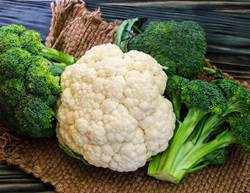Lovely locks aren’t just the result of a stellar styling routine. Mounting scientific evidence is showing that you can eat your way to stronger, thicker, and shinier hair.
“Hair follicle cells are some of the most metabolically active and have amongst the highest cell turnover rate in the body,” says Dr Alan Bauman, a hair restoration physician and hair transplant surgeon. “Restricting kilojoules or falling short on protein, minerals, essential fatty acids and vitamins can lead to abnormalities in hair fibre structure and production, pigmentation changes as well as hair loss. If you’re deficient in the basic nutritional building blocks like protein, your body won’t produce healthy hair.”
The best vitamins and nutrients for hair growth
Hair growth is most prolific from age 15 to 30, and may slow or change after 40. While there’s no vitamin H to reboot your hair, building a menu that’s rich in these nutrients will offer the biggest benefits:
- Protein
- Iron
- Vitamins A, C, D, and E
- B vitamins
- Omega-3 and -6 fatty acids
- Zinc
- Selenium
- Magnesium
If altering your diet doesn’t do the trick, speak to your doctor, suggests dermatologist Dr Salvatore Di Grandi. Hair loss or drastic hair health changes could be a symptom of an internal disease, like an under-active thyroid, a liver issue, or an autoimmune condition like lupus.
It could also be linked to “telogen effluvium,” the name for hair loss caused by a major life stressor, such as giving birth, a death in the family, a new job, or moving. These triggers will likely require a more multifaceted treatment approach.
But if you’ve ruled out more serious conditions and simply want to boost volume and amp up shine, what you put on your plate matters. Here, dermatologists share the best foods for hair growth you should be eating regularly.
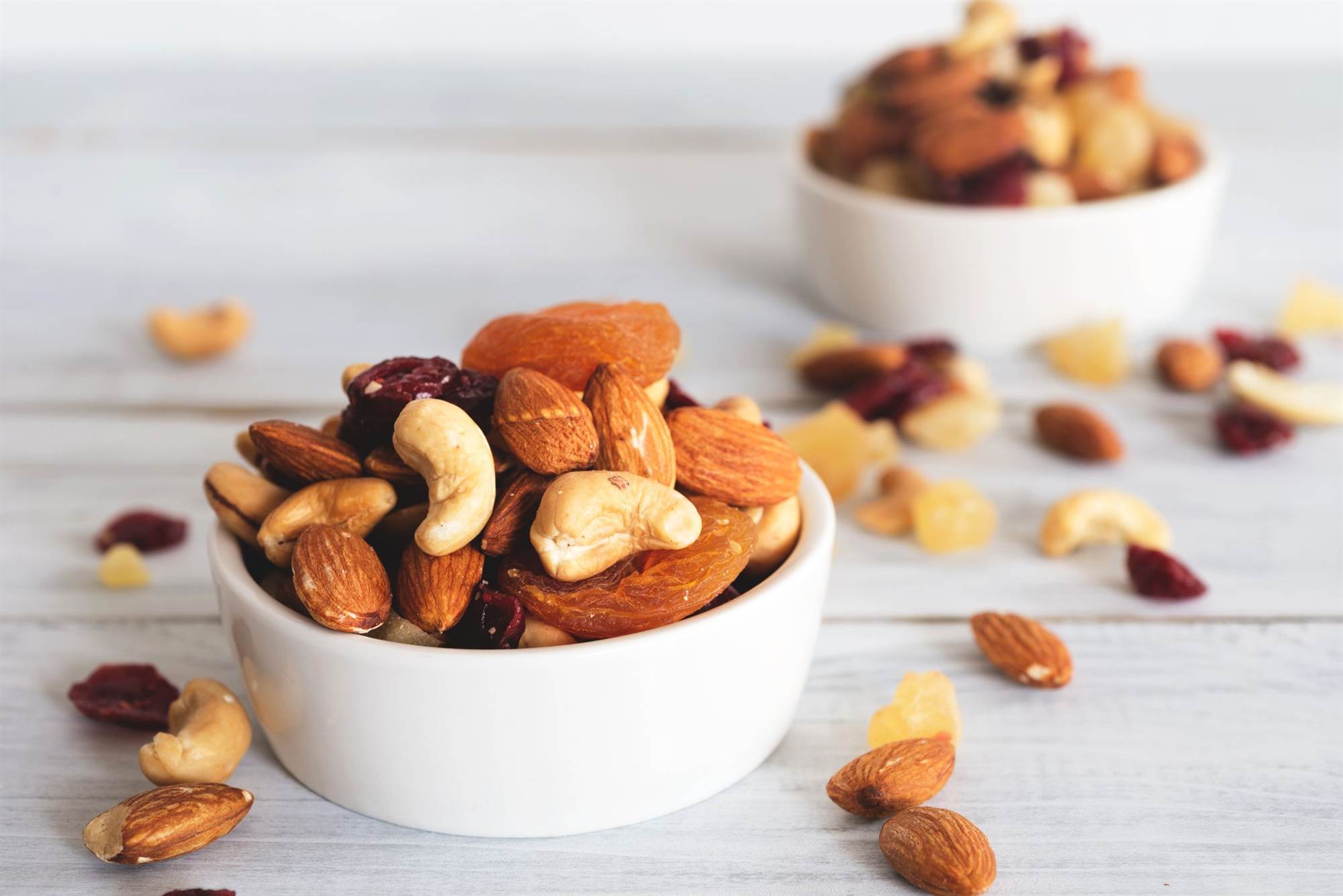
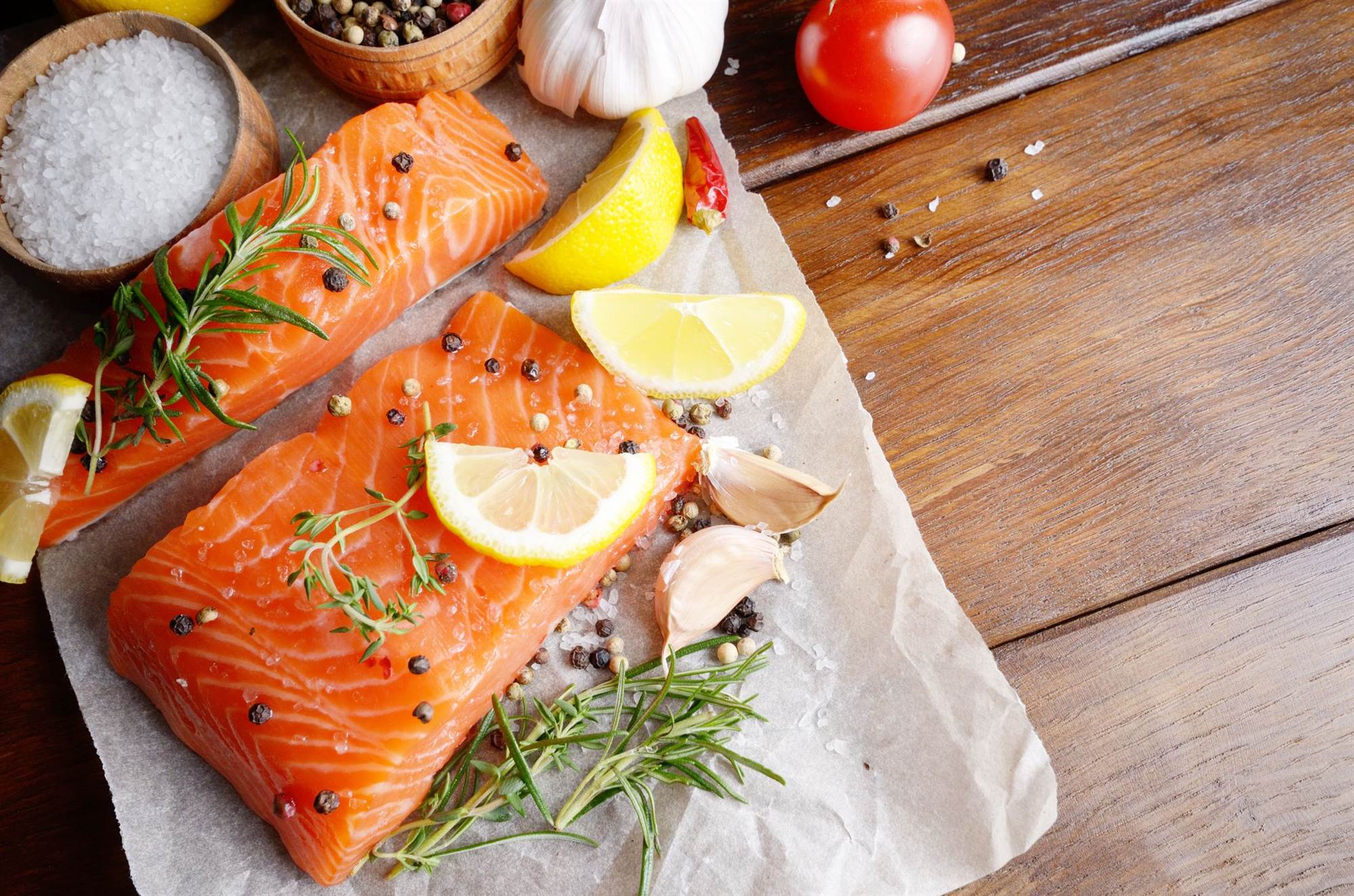
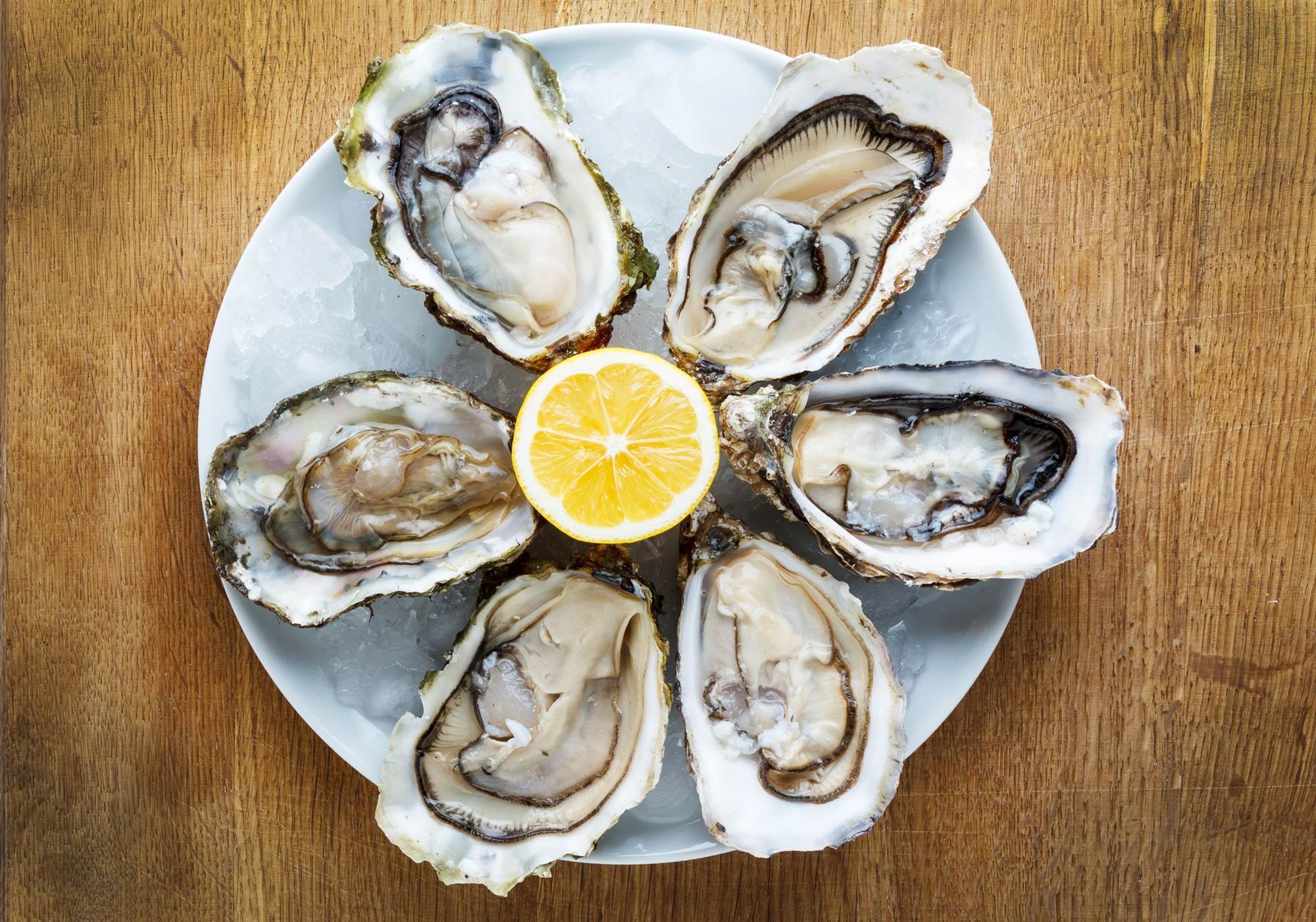

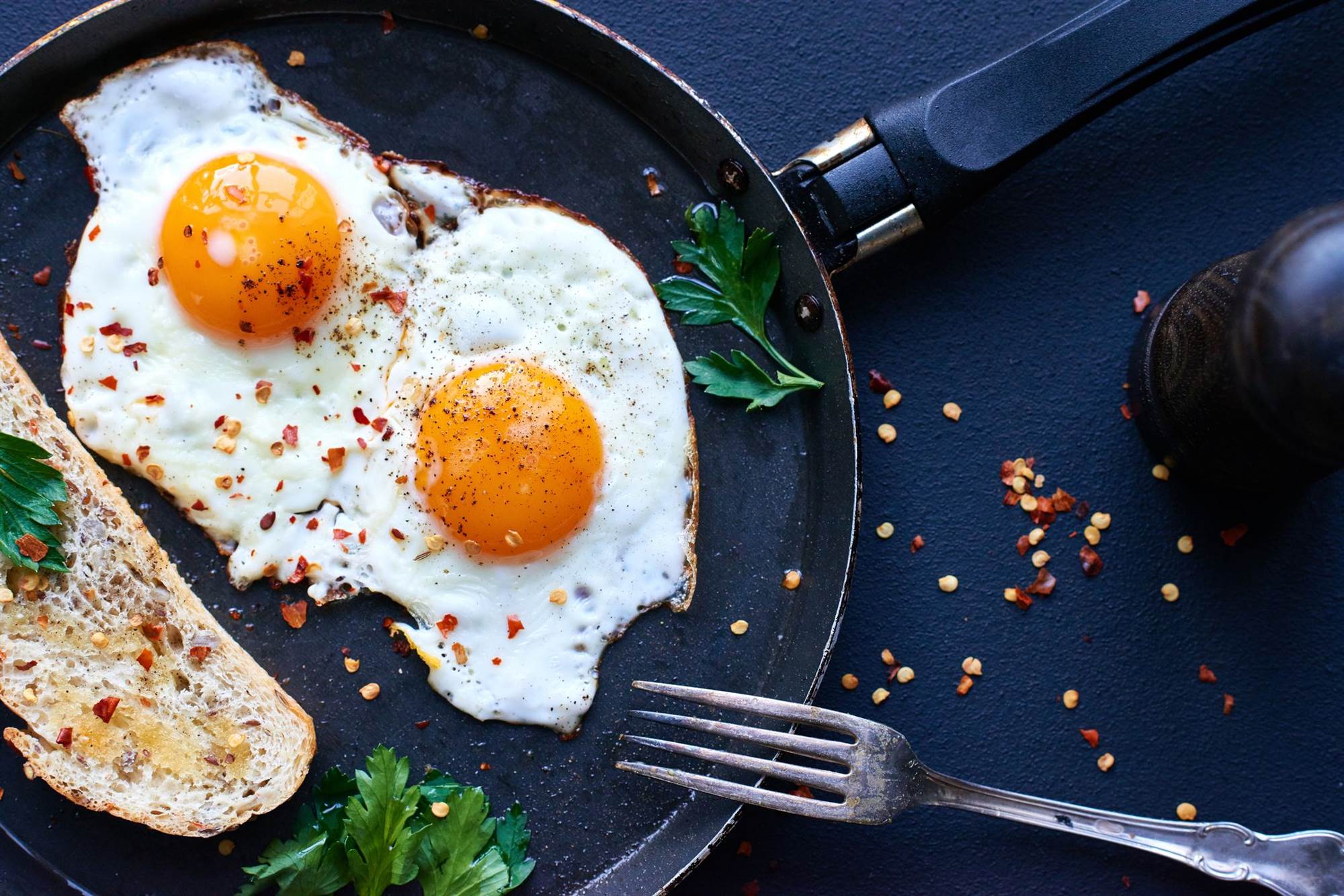
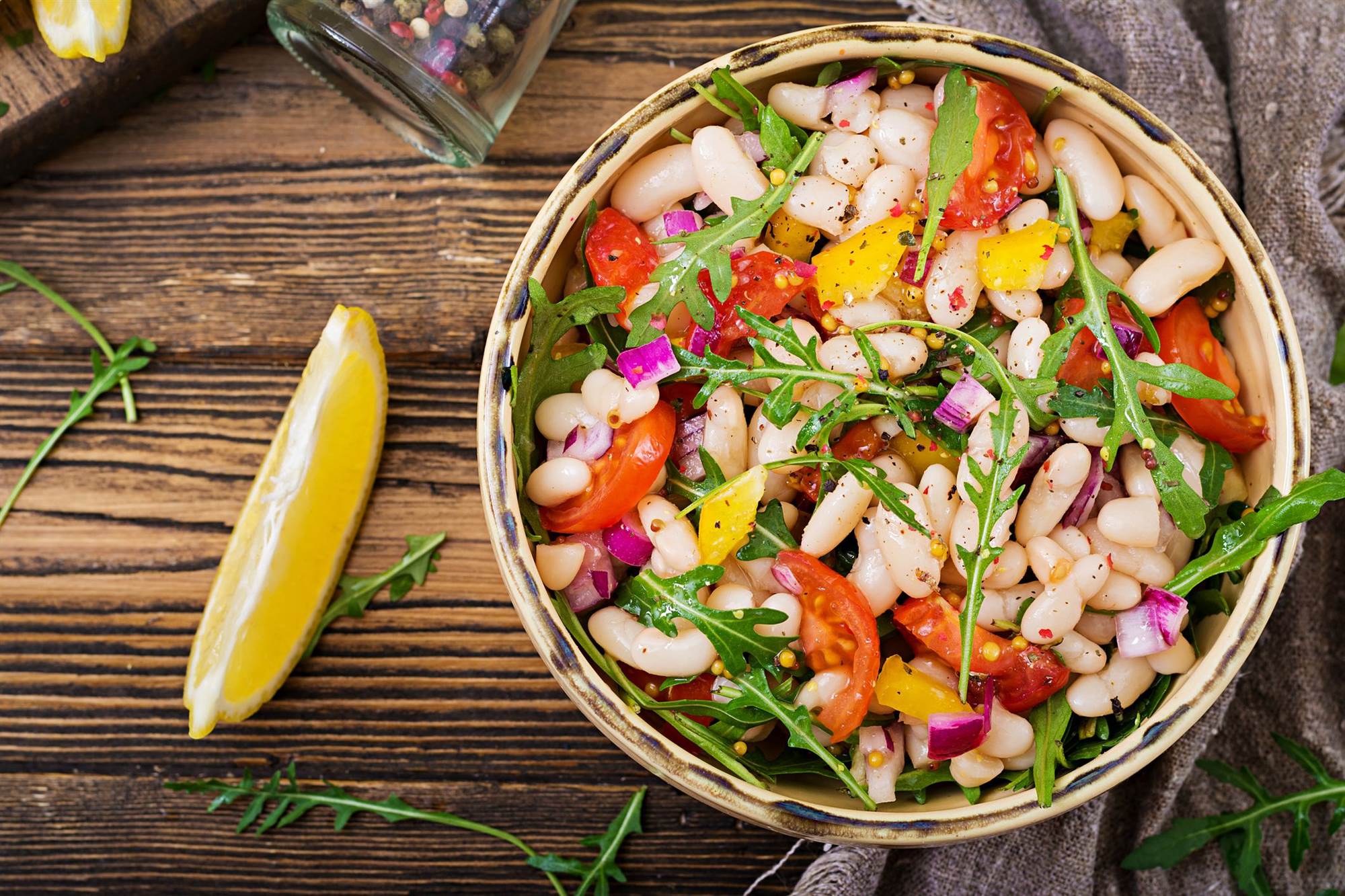
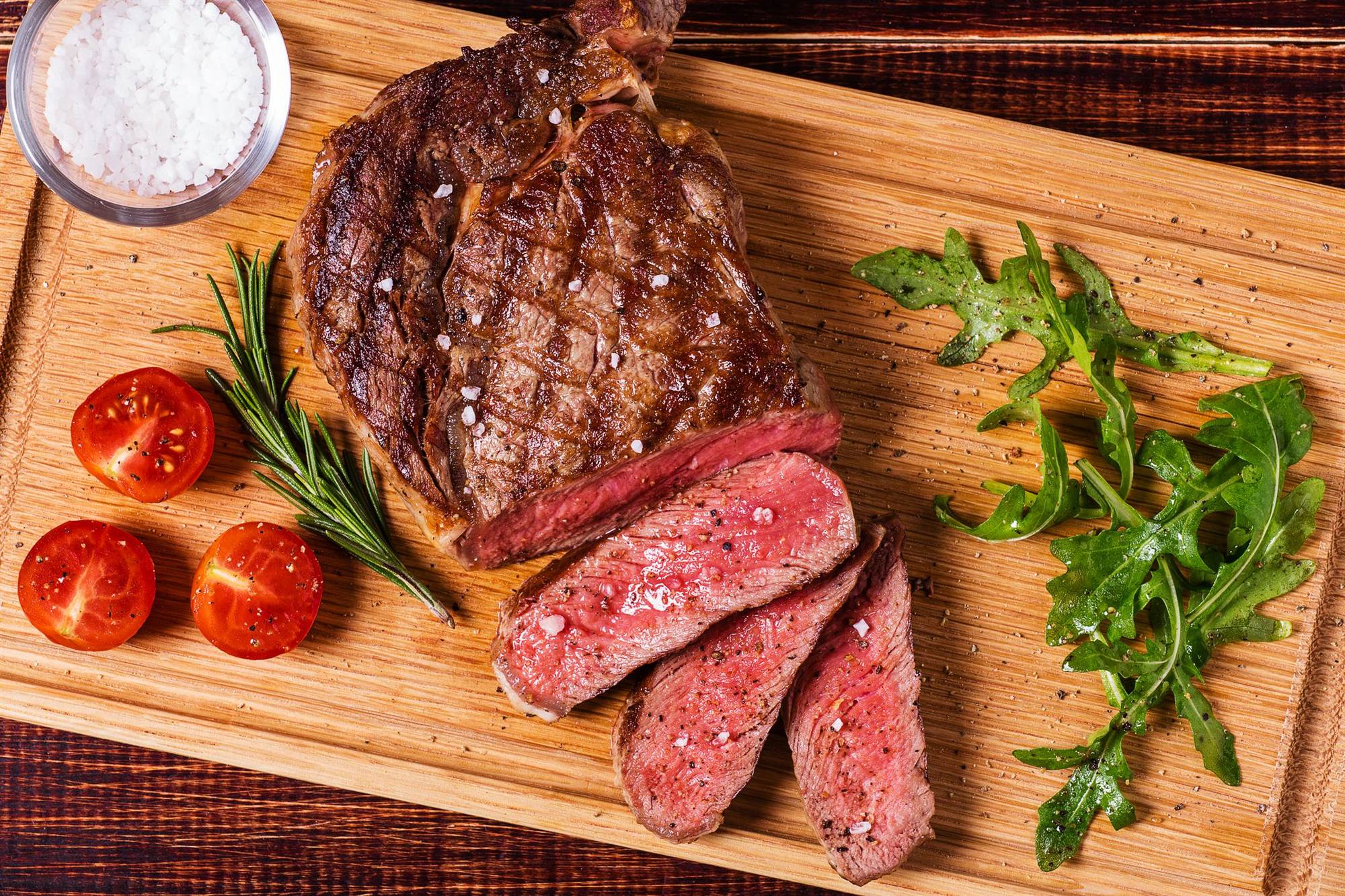
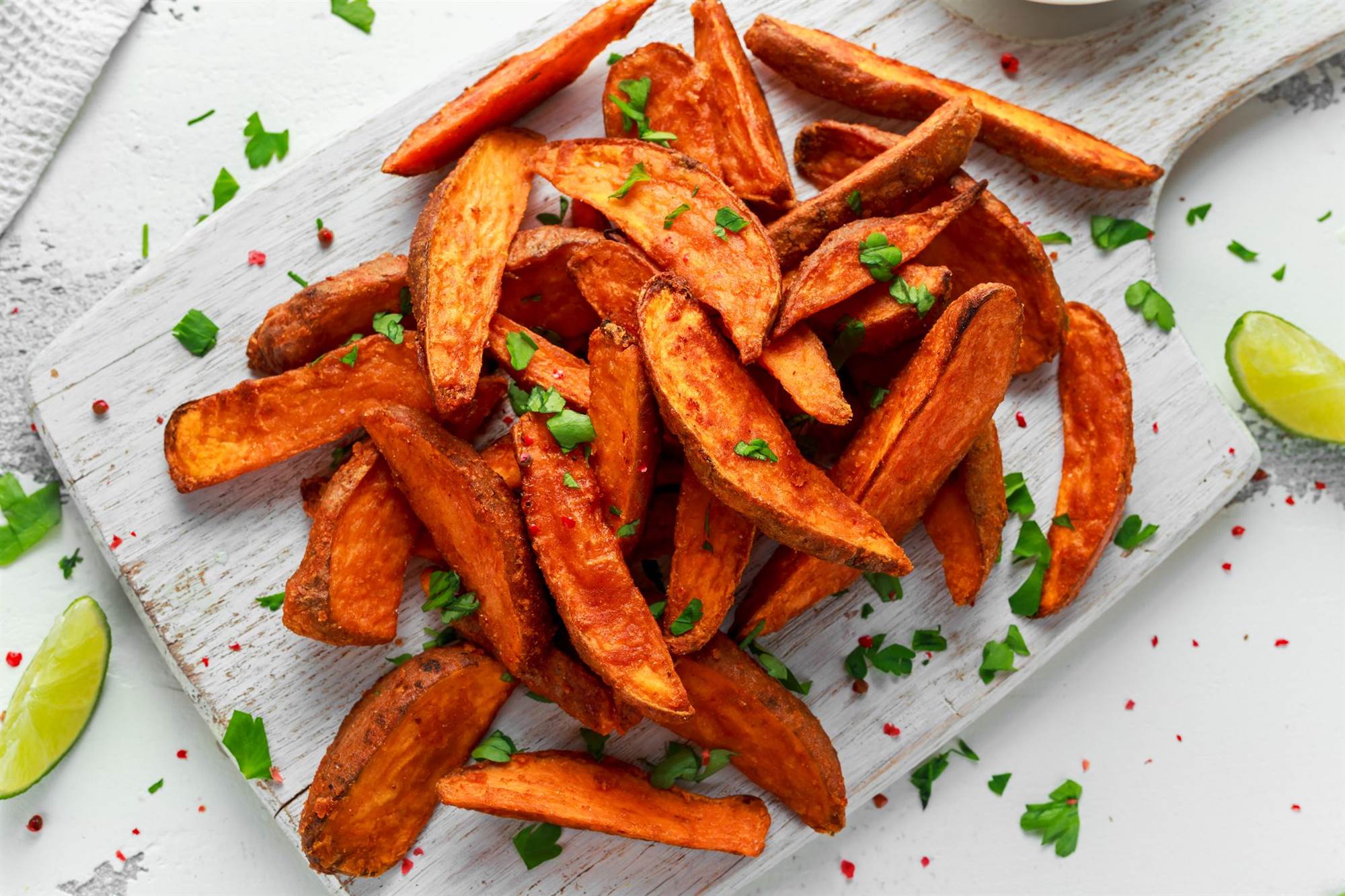
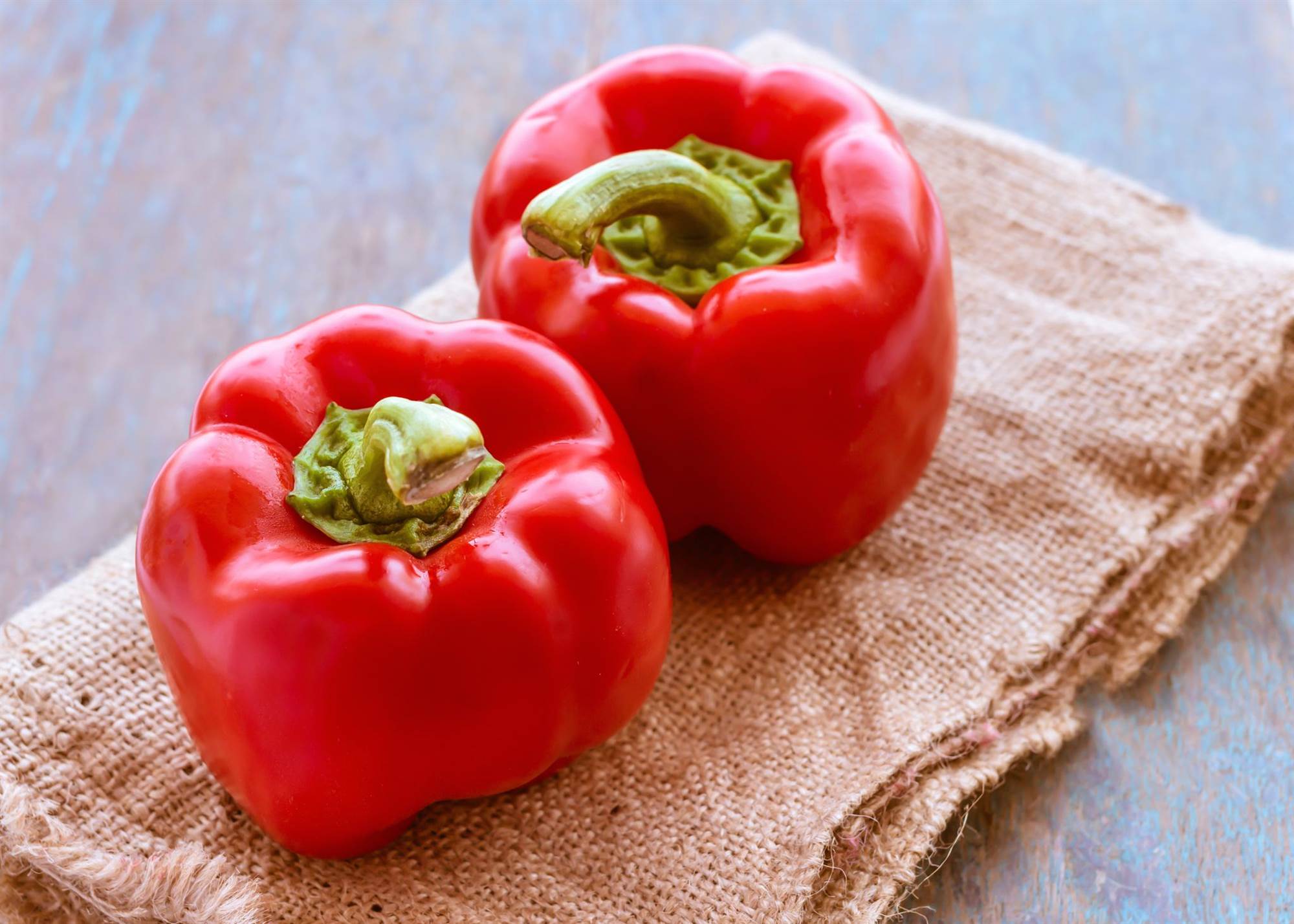
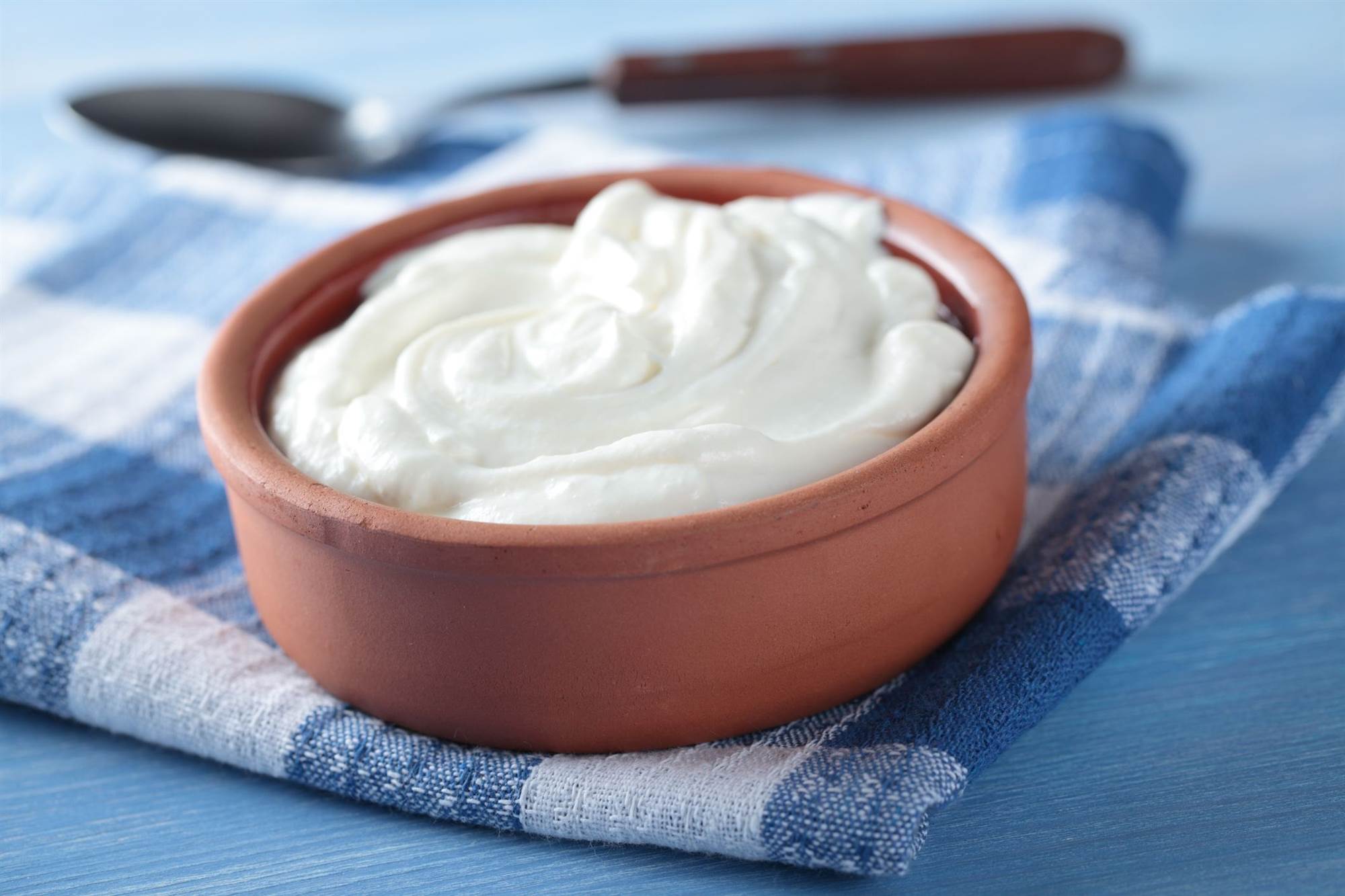
SvetlanaFedoseeva ©Getty Images
1) Nuts
Fueling up with enough kilojoules and healthy fats does more than keep your muscles and heart healthy. Research in a study from the Journal of Cosmetic Dermatology showed that omega-3 and omega-6 essential fatty acids could help reduce hair loss and improve hair growth.
“Nuts, such as almonds or walnuts, and coconut oil are natural emollients for the skin and hair follicle and also moisturise the hair shaft, leaving it glossy,” says dermatologist Dr Anna D Guanche.
Nuts and seeds are also rich in B vitamins, magnesium, zinc, and vitamin E, adds dermatologist Dr Rhonda Klein. Vitamin E teams up with selenium to keep cell membranes strong and provide antioxidant defence.
SvetlanaFedoseeva ©Getty Images
2) Fatty fish
It’s probably clear as the Caribbean Sea by now that protein is important. “Sudden weight loss, or poor diets low in protein, low in healthy fats and low in phytonutrients found in fresh vegetable and fruits can contribute to shedding and limp, unhealthy hair. Women need to get about 50 grams of protein a day,” says Dr Mary Wendel, an internal medicine specialist.
Fatty fish, like salmon, herring, tuna and sardines offer protein, vitamin D, omega-3 fats and other hair-boosting components (like linoleum acid, an essential fatty acid) to “nourish the skin and thicken the fat layer around the hair follicle, resulting in healthier hair growth,” she adds.
SvetlanaFedoseeva ©Getty Images
3) Oysters
The World Health Organization ranks iron deficiency as the world’s most common deficiency, "affecting up to 80% of the population,” Dr Bauman says. “Even small changes in iron levels without the presence of anemia can trigger hair loss and thinning.”
While red meat, leafy greens, whole grains, beans, and egg yolks provide iron as well, Dr Wendel and Dr Klein are particularly fond of oysters since they offer a one-two punch of iron and zinc—the latter of which is “an essential mineral that aids in hair growth and repairs hair cycle support,” according to Dr Klein. A 99g serving of smoked oysters will add about 7 milligrams (mg) of iron and a whopping 63mg of zinc to your diet.
SvetlanaFedoseeva ©Getty Images
4) Spinach
Popeye’s favourite leafy green is also in the iron-rich camp. Spinach is one of Dr Wendel’s top vegan-friendly iron sources, a nutrient that can help prevent thinning hair.
Beyond beefing up your iron levels, spinach is full of folate, along with vitamins A and C. “While vitamin C deficiency is rare in our current society, it’s essential for collagen synthesis and cross-linking of keratin fibres, which occurs in hair fibre production,” says Dr Bauman.
SvetlanaFedoseeva ©Getty Images
5) Eggs
Get cracking! “Eggs are a great source of protein and biotin, which are both important for healthy hair and growth,” Dr Klein says. Biotin keeps enzymes buzzing to metabolise nutrients, like fats and carbs, that nourish hair follicles.
Plus, eggs yolks in particular are potent in vitamin D, which is important to get via diet or supplementation since our bodies don’t produce it naturally, says plastic surgeon Dr Anthony Youn. Just one large egg has about 41 IU of vitamin D, or 10% of your daily value.
SvetlanaFedoseeva ©Getty Images
6) Beans
Dr Wendel also recommends beans as another vegan-friendly source of iron and protein. Just 1/2 cup of white beans gets you nearly 9 grams of plant protein and 3.5 grams of iron, not to mention about 6 grams of gut-filling fibre, some zinc, selenium, and folate, too.
Not feeling white beans? Black beans, chickpeas, lentils, peas, and other pulses will help you switch things up and still pack tons of hair-healthy protein, iron, and fibre.
SvetlanaFedoseeva ©Getty Images
7) Grass-fed beef
If you’re a meat-eater, you’ll be hard-pressed to find a more lock-loving menu addition than lean red meat. “Grass-fed beef is rich in iron and omega-3 fatty acids, both of which can help thicken hair and make it healthier and more luxurious,” says Dr Youn.
A 113g portion will score you 23 grams of protein, nearly 3mg of iron, and roughly 6 grams of unsaturated fats.
SvetlanaFedoseeva ©Getty Images
8) Sweet potatoes
Whether you whip up healthier chips, turn them into a dessert, or toss them in a salad, sweet potatoes served any style are hair-healthy, thanks to their abundance of vitamins A and B6.
In fact, the average sweet potato packs nearly six times your daily value of vitamin A, “which aids in sebum (a.k.a. oil) production and also may help speed up the rate of hair growth,” Dr Klein says. Plus, all that vitamin A benefits your eye health and immune function, too.
SvetlanaFedoseeva ©Getty Images
9) Capsicum
Not only is vitamin C crucial for healthy hair because it aids in collagen fibre synthesis, but it also plays a crucial role in the amount of iron your body actually absorbs, research shows.
Of course, you can find plenty of vitamin C in fruits like oranges, strawberries, and kiwi, but capsicum will easily knock your daily value out of the park with 95mg per 1/2 cup. Plus, they also pack vitamin A and some iron, zinc, selenium, and folate, too.
SvetlanaFedoseeva ©Getty Images
10) Greek yogurt
Go for the unsweetened stuff, and you’ll pack 24 grams of protein (remember, the building blocks of your hair!) without all the added sugar that many yogurts pack. Not to mention, you’ll get a nice dose of calcium at 282mg, which plays a role in keeping hair healthy, but many women start to lack past age 49, research shows. Eat on its own with vitamin C-rich berries, throw into protein smoothies, or make a healthier dip and skip the sour cream.
Additional reporting by Alisa Hrustic






